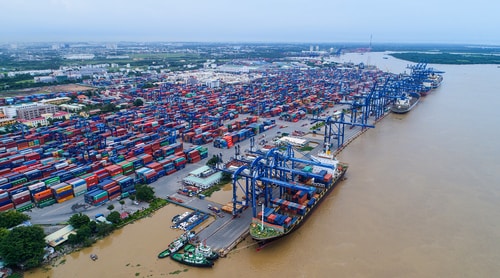
HCM City (VNA) – A forum on human resources development for the logistics industry and future trends in Vietnam took place in Ho Chi Minh City on May 16, gathering 200 scientists, experts and firms in the country and overseas.
Participants discussed building coordination plans for public agencies, vocational training schools and logistics enterprises to shorten the supply – demand gap regarding employees’ skills in Vietnam.
Le Duy Hiep, Chairman of the Vietnam Logistics Business Association (VLA), said vocational training providers are facing difficulties in equipping their students with skills meeting the requirement of businesses.
As such, graduates are often classified as low-skilled workers with lower salaries and need to undergo further training from the recruiters. Meanwhile, up to 70 percent of businesses find it hard to fill their workforces, including both senior managers and unskilled workers.
He said the forum hopes to form a strong link between firms and educational facilities to tackle the shortage of competent logistics workers.
He noted amid the impact of automation and e-commerce on the industry, there is a need for training to catch up with technological advances, thus improving the sector’s competitiveness.
Petrina Lawson, Australian Deputy Consul-General in Ho Chi Minh City, said Australia is committed to supporting Vietnam in improving its logistics sector, thus contributing to the country’s overall economic development.
The forum was organised by the municipal chapter of the Vietnam Chamber of Commerce and Industry (VCCI), VLA and Australian-funded Au4skills project.
According to the VLA, between 2017 and 2020, Vietnam needs some 200,000 high-quality logistics workers, who are competent in their profession and good at English. By 2039, the industry will demand about 2 million high-quality and unskilled workers.
The sector records an average annual growth of more than 10 percent and contributes approximately 5 percent to Vietnam’s GDP. The Government has set a goal for its GDP contribution to reach 10 percent during 2020 – 2030.-VNA



